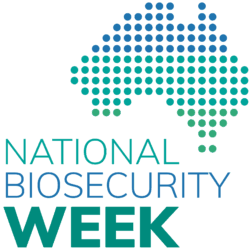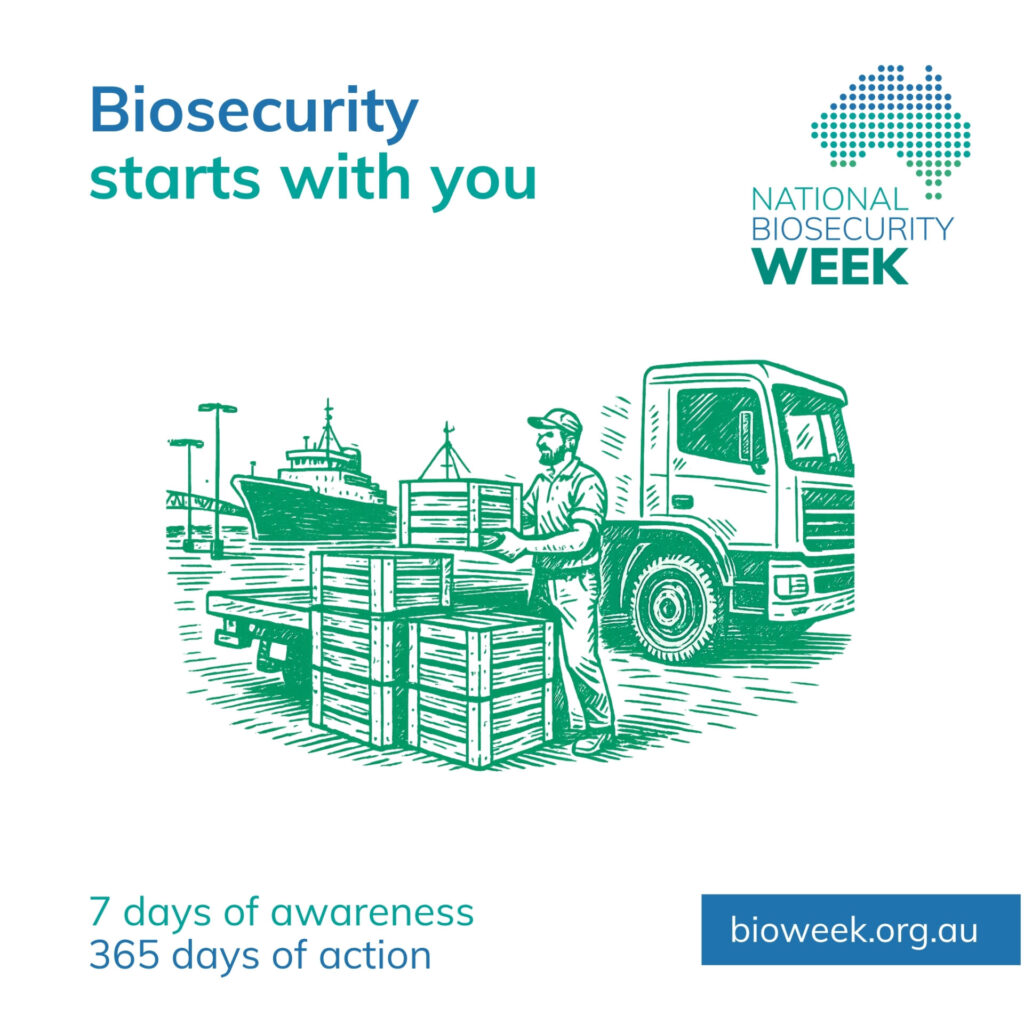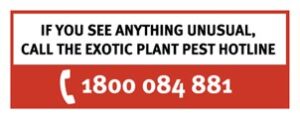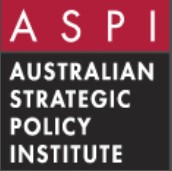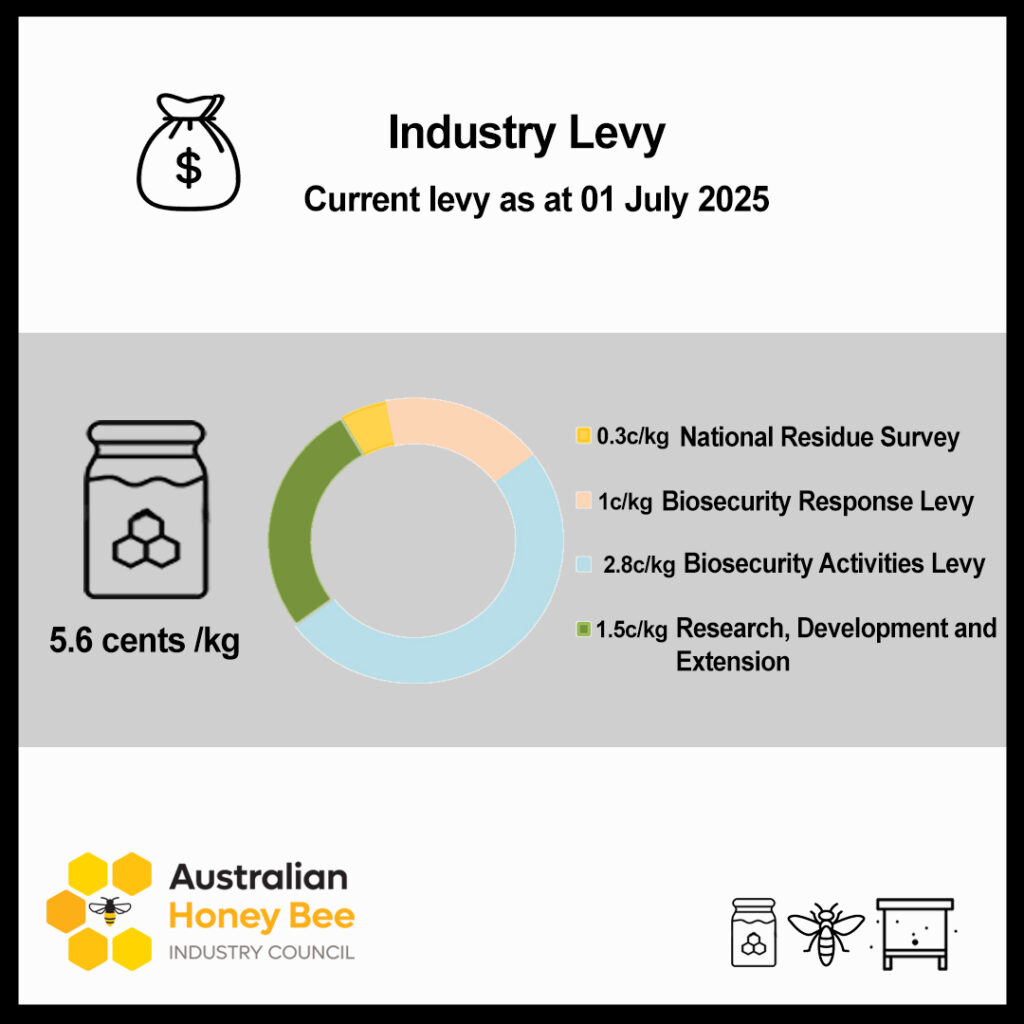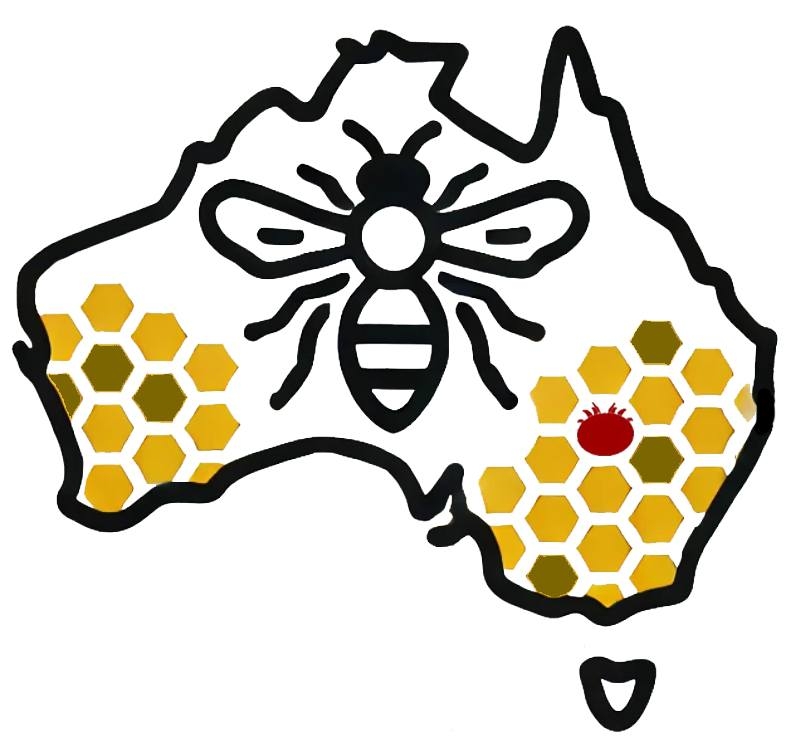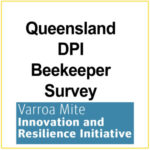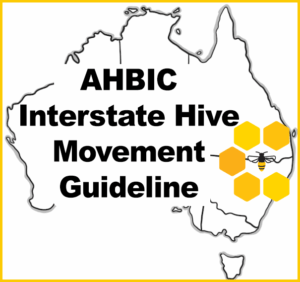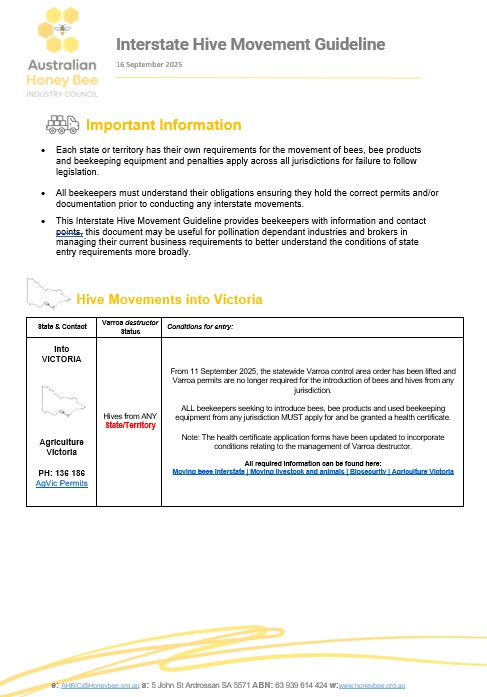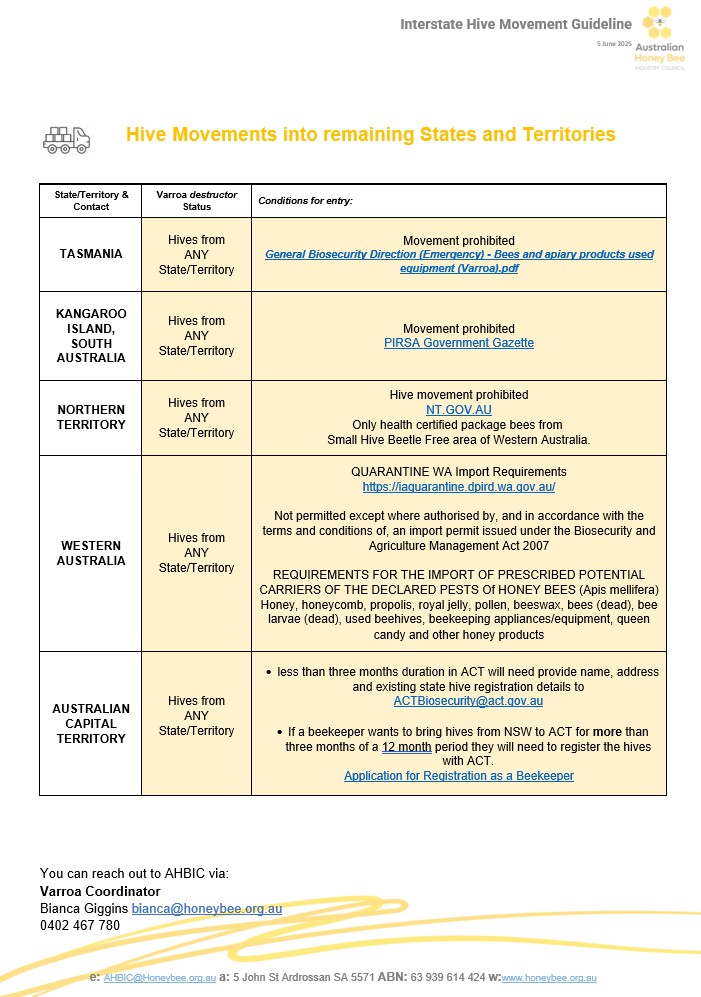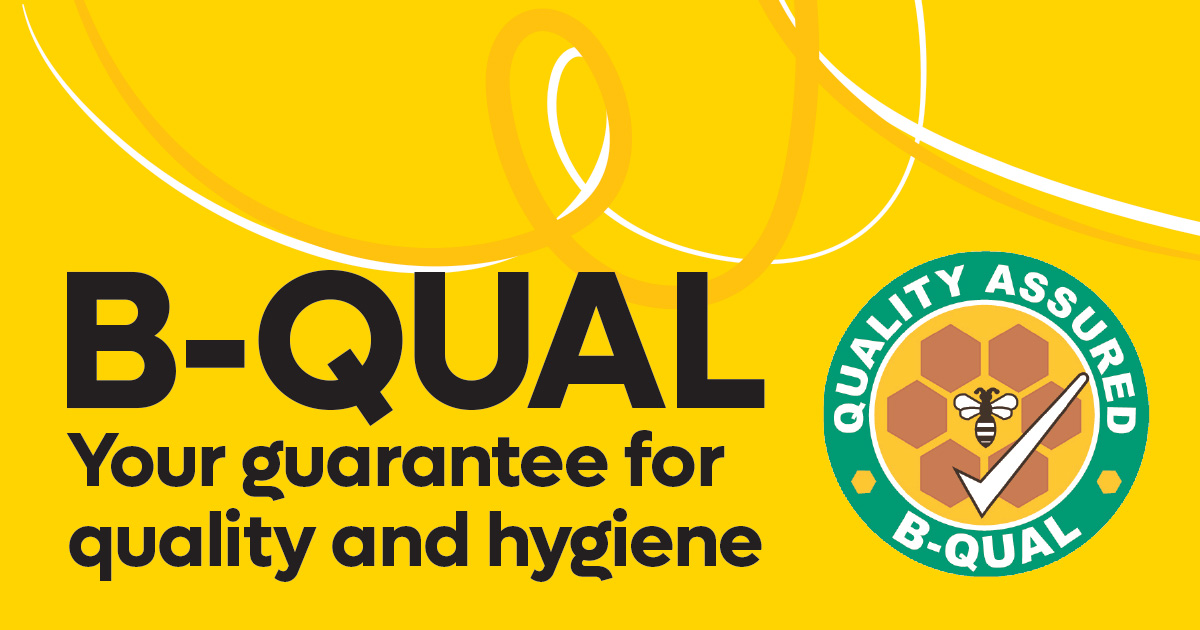CEO Update August 2025
CEO Report August 2025
July/August has been incredibly busy for most beekeepers with the largest livestock movement in Australia occurring. Nearly 300,000 hives have been moved into almond orchards this season. At the same time, crops like blueberries have also required bees for pollination, applying further pressure on supply.
Leading into almonds we had reports of highly variable colony strength across SA, Vic and NSW and decreased numbers of hives available as beekeepers leave weaker colonies at home. This created some panicked calls from beekeepers and growers leading into almond bloom. We have been doing our best to solve problems and connect growers/beekeepers where possible.
The interstate border restrictions and challenges around navigating the different permit systems has also created stress for beekeepers, brokers and some growers.
Whilst beekeepers have been busy on almonds, here at AHBIC we have been able to focus on getting a great deal of administration and project proposal writing done.
Virus Baseline testing
As part of the National Transition to Management Program a virus baselining project has been delivered. The aim of the project was to collect bee samples from around Australia and test for exotic viruses that might interact with varroa. Eight viruses were tested across 5,769 pools of samples with samples coming proportionally from all states and territories.
Across all samples there were no new viruses or exotic viruses to Australia detected. This gives us great confidence that viruses like deformed wing virus are not lurking broadly across the bee population at low levels. Interestingly rhabdovirus 1 & 2 was only detected in areas where varroa had established which reaffirms that this virus arrived with the varroa incursion.
For the endemic viruses for which testing was undertaken there was a very high prevalence of Black Queen Cell virus (94.8% of all pools tested were positive), Lake Sinai virus genotypes 1 & 2 (83.9%), Sacbrood virus (82.2%) and Israeli Acute paralysis virus (39.0%).
Almonds
A later than usual flowering across the major production areas bought some beekeepers time to get bees in, and growers some additional time to source last minute hives. A significant number of hives were brought in from Queensland into both Victoria and South Australia. There was a small shipment of hives from Western Australia delivered into South Australia this year to make up some shortfalls.
The almond footprint continues to grow with the Almond Boards newly released ‘Almond Insights’ publication sighting plantings are up 4% to 66,000ha. The statistics also show that self-fertile plantings are increasing to nearly 4,000ha of the total plantings. Nonpareil still dominates planting at 43% of all trees in the ground.
Apimondia
The global organisation representing beekeepers will hold their 49th congress in Copenhagen during September 23-27. The congress is being organised jointly by the beekeeper associations in Sweden, Norway and Denmark. The vision for the congress is to showcase pure apiary products, create unity and knowledge sharing and together make the world bloom.
It is fantastic to see several Australian beekeepers travelling to attend the congress. As the Australian member of Apimondia, AHBIC appoints a delegate to represent Australia at the General Assembly. This congress the AHBIC board has appointed Jodie Goldsworthy as our official delegate. We thank Jodie for agreeing to volunteer her time to represent Australia in the global conversations.
Red Dwarf Honey Bee Incursion in WA
A total of 47 colonies have now been found and destroyed, 2 more than when I last reported. 27 abandoned nests have been located and there is now only 1 active foraging site of concern. All the current detections are still within 2km of the original IP, but all detections have had Euvarroa present.
The response is now using drone technology to assist in surveying difficult terrain and hard to reach areas. Over the next period the teams will continue to search for colonies using all available tools and with greater funding surety the response should accelerate.
The Month Ahead
During September, work will continue with the transition to management program, DAFF and imported honey and levies reform. The Manuka Honey Association and B-QUAL AGM’s will be held and a number of meetings with stakeholders have been scheduled across the month.
I hope Spring brings good conditions for those affected by drought and that beekeepers are able to stay on top of varroa numbers.
Danny LeFeurve
CEO


